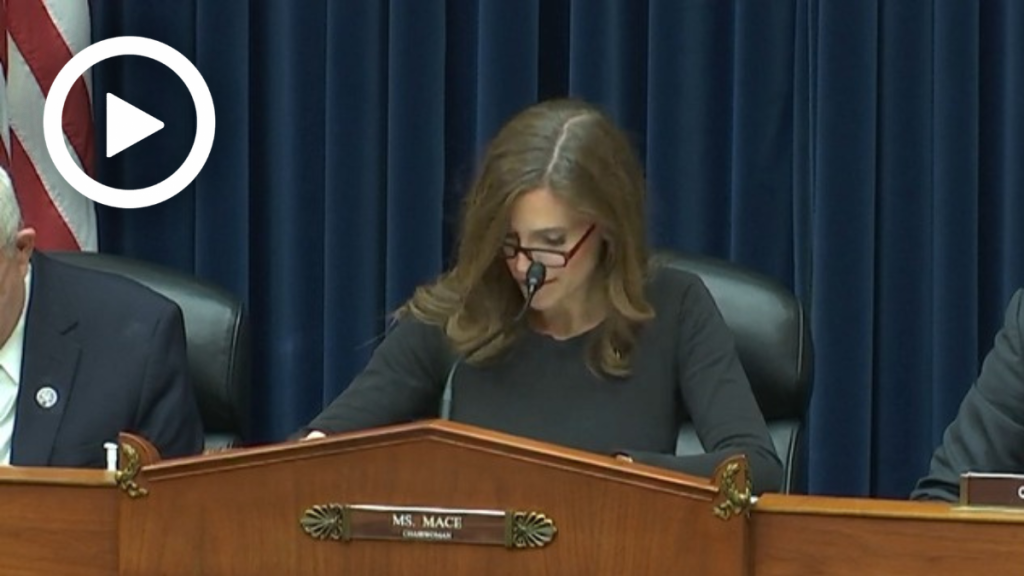Hearing Wrap Up: GSA Offers Weak Justification for Buying Chinese-Made Videoconference Equipment in Wake of IG Report Alleging TAA Violation
WASHINGTON—The Subcommittee on Cybersecurity, Information Technology, and Government Innovation held a hearing titled, “Made in China: Is GSA Complying with Purchasing Restrictions?” Members discussed with the General Services Administration’s (GSA) Office of Inspector General (OIG) and the GSA Chief Information Officer (CIO) the badly flawed process and research that led to the agency purchasing 150 Chinese-made videoconference cameras in violation of federal procurement law.
Key Takeaways:
According to a January 2024 report by the Inspector General, flawed GSA staff research persuaded a contracting officer to purchase 150 Chinese-made cameras in violation of the Trade Agreements Act.
- Robert Erickson—Deputy Inspector General of the Office of Inspector General over the U.S. General Services Administration—broke down the findings of the IG report: “Our auditors found that GSA Office of Digital Infrastructure Technologies (IDT) employees misled a contracting officer, the GSA employee responsible for the purchase, with egregiously flawed information to acquire 150 Chinese-manufactured, TAA-noncompliant videoconference cameras. GSA purchased 70 of the TAA-noncompliant cameras in March 2022, followed by an additional purchase of 80 TAA-noncompliant cameras in October 2022.
- Mr. Erickson continued: “Before completing the purchases, the contracting officer requested information from GSA IDT to justify its request for the TAA-noncompliant cameras, including the existence of TAA-compliant alternatives and the reason for needing the specified brand. In response, GSA IDT provided misleading market research in support of the TAA-noncompliant cameras and failed to disclose that comparable TAA-compliant alternatives were available.
While GSA admitted that it made errors in the procurement process, and generally agreed with the IG report’s recommendations, agency management contested the IG’s conclusion that the Chinese-camera purchases violated federal law. The IG disagreed, however, arguing that the purchase did not qualify for a TAA exemption.
- Mr. Erickson continued: “The Trade Agreements Act (TAA) requires federal agencies to buy only goods that are made in America or a TAA designated country with limited exceptions. China is not on that list.”
Member Highlights:
Subcommittee on Cybersecurity, Information Technology, and Government Innovation Chairwoman Rep. Nancy Mace (R-S.C.) pointed out that GSA did not dispute that it had violated the TAA law when initially provided an opportunity to publicly respond in writing to the IG’s findings.
Rep. Mace: “Your office issued an audit saying GSA broke the law when it bought these cameras made in China. If GSA feels an IG report falsely accuses them of breaking the law, shouldn’t GSA say so in their formal response to the report?”
Mr. Erickson: “That is exactly right, they had many opportunities to read the report. They have a discussion draft which they get, and we discuss it with them, and have meetings with them, they have a draft report, and then a final report. And they simply didn’t say anything in their written response to our audit report.”
Rep. Mace: “Why would that be?”
Mr. Erickson: “I don’t know ma’am. You’d have to ask GSA.”
Subcommittee Chairwoman Mace also drilled down on one of the excuses GSA used for procuring the Chinese -made cameras, which was the exorbitant levels of telework still in use by the agency.
Rep. Mace: “It’s the end of pandemic, people are coming back to work, I would think you would need fewer cameras than more, why the 360 [degree Chinese cameras]?”
Mr. Shive: “…for people who are off site, it allows for-”
Rep. Mace: “How many people are off site at your agency?”
Mr. Shive: “I don’t have that number but I’m happy to get that for you.”
Rep. Mace: “You don’t know how many people work from home?”
Mr. Shive: “Um I know percentages.”
Rep. Mace: “Ok, what’s the percentage of people working from home at your agency?”
Mr. Shive: “It’s different every day, I don’t have an exact number.”
Rep. Mace: “On average?”
Mr. Shive: “Um, on average 30-40% of people are on site every day.”
Rep. Mace: “Ok so based on data we’ve seen, your agency seems to be an outlier even for federal agencies in terms of employees that are working from home.”
